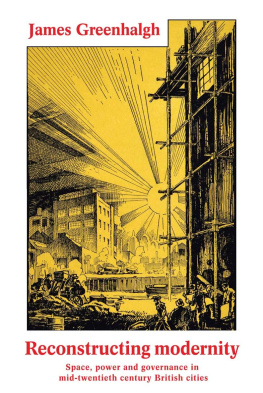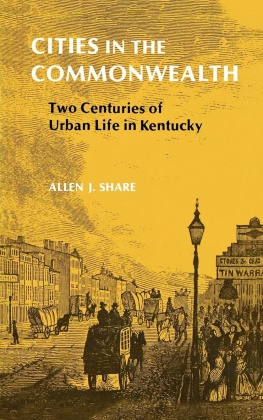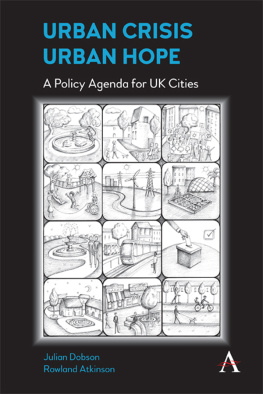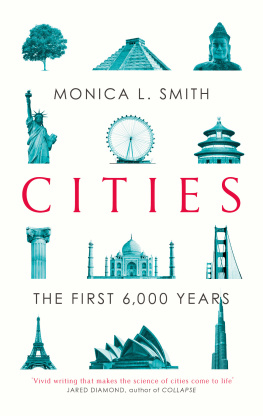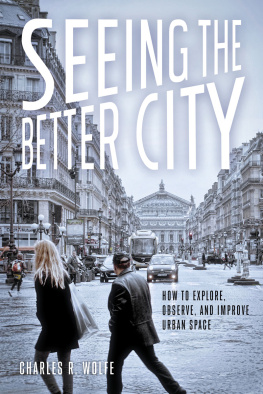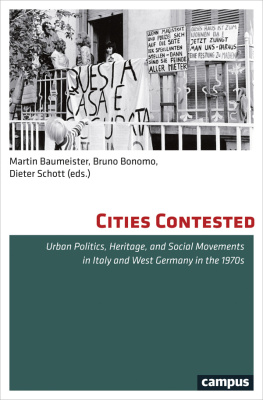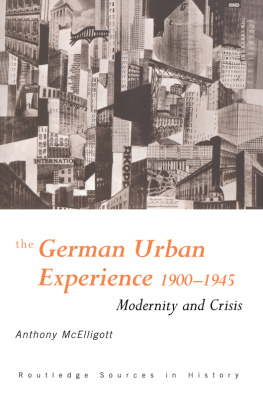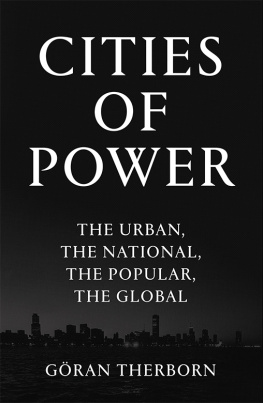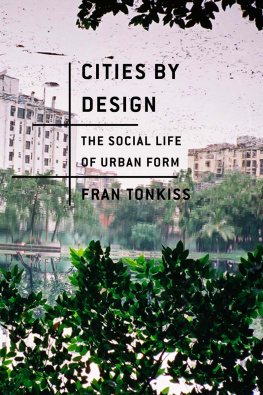Weimar Cities
Routledge Studies in
Modern European History
1. Facing Fascism
The Conservative Party and the European
Dictators 19351940
Nick Crowson
2. French Foreign and Defence Policy, 19181940
The Decline and Fall of a Great Power
Edited by Robert Boyce
3. Britain and the Problem of International Disarmament 19191934
Carolyn Kitching
4. British Foreign Policy 18741914
The Role of India
Sneh Mahajan
5. Racial Theories in Fascist Italy
Aaron Gilette
6. Stormtroopers and Crisis in the Nazi Movement
Activism, Ideology and Dissolution
Thomas D. Grant
7. Trials of Irish History
Genesis and Evolution of a Reappraisal
19382000
Evi Gkotzaridis
8. From Slave Trade to Empire
European Colonisation of Black Africa 1780s1880s
Edited by Olivier Ptr-Grenouilleau
9. The Russian Revolution of 1905
Centenary Perspectives
Edited by Anthony Heywood and
Jonathan D. Smele
10. Weimar Cities
The Challenge of Urban Modernity in Germany, 19191933
John Bingham
Weimar Cities
The Challenge of Urban Modernity
in Germany, 19191933
John Bingham
First published 2008 by Routledge
Published 2016 by Routledge
2 Park Square, Milton Park, Abingdon, Oxon OX14 4RN
711 Third Avenue, New York, NY 10017, USA
Routledge is an imprint of the Taylor & Francis Group, an informa business
Copyright 2008 by Taylor & Francis Group, LLC
All rights reserved. No part of this book may be reprinted or reproduced or utilised in any form or by any electronic, mechanical, or other means, now known or hereafter invented, including photocopying and recording, or in any information storage or retrieval system, without permission in writing from the publishers.
Notice:
Product or corporate names may be trademarks or registered trademarks, and are used only for identification and explanation without intent to infringe.
Credits and acknowledgments borrowed from other sources and reproduced, with permission, in this textbook appear on appropriate page within text.
ISBN 13: 978-0-415-95744-1 (hbk)
Library of Congress Cataloging-in-Publication Data
Bingham, John, 1959-
Weimar cities : the challenge of urban modernity in Germany, 1919-1933 / John Bingham.
p. cm. -- (Routledge studies in modern European history; 10)
Includes bibliographical references and index.
ISBN 978-0-415-95744-1 (hardback : alk. paper)
1. Cities and towns--Germany--History--20th century. 2. Urbanization--Germany--History--20th century. 3. Germany--History--1918-1933. I. Title.
HT137.B55 2007 |
307.7609430904--dc22 | 2006102908 |
For Barbara
Contents
It is a great pleasure at the end of this project to be able to acknowledge the enormous help of those along the way. This book began as a dissertation at York University under the supervision of Michael H. Kater. Although neither its direction nor final shape were always what he anticipated, I am grateful for his early interest and continuing support, as well as his exacting eye in reading the various drafts. Of many others who offered advice, encouragement and criticism, I wish to mention particularly Celia Apple-gate, William D. Irvine, and John Marshall.
My research was initially supported by a doctoral fellowship and, in 2001, an institutional grant from the Social Sciences and Humanities Council of Canada. A Research Development Fund grant from Dalhousie University made possible significant additional work in 1999. The staffs of the Landesarchiv in Berlin, the Geheimes Staatsarchiv Preussischer Kulturbesitz in Dahlem, the Nordrhein-Westflisches Hauptstaatsarchiv in Dsseldorf, and the Dsseldorf Stadtarchiv were unfailingly patient and helpful. Herr Volker Viergutz at the Landesarchiv was at all times a gracious and knowledgeable guide in my explorations of the vast records of the Deutsche Stdtetag and of other communal associations held there. I am particularly grateful to the Landesarchiv staff for generously allowing me to work through renovations in the summer of 1999. The Interlibrary Loan departments at the libraries of York University, the University of Wisconsin-Madison and Dalhousie University were always helpful and patient with my requests for even the most obscure material.
Anthony McElligott and Lawrence Stokes read portions of the manuscript and offered friendly advice at different stages. For generous comradeship, communal endeavor, and kind attention in various measures, I thank Jennifer Jenkins, Sean Kennedy, Kenneth Mour, James Retallack, Thomas Saunders, and Philip Zachernuk. My colleagues in the Department of History at Dalhousie have patiently heard more, read more, and talked more about Weimar cities than they could have possibly foreseen when they welcomed me in 1998.
At Routledge, two anonymous readers provided excellent comments and suggestions that have helped improve the book. Research Editor Max Novick and his assistant, Erica Wetter, were remarkably efficient, kind, and patient with a neophyte author.
The encouragement and support from friends and family have sustained me far beyond what I had any reason or right to expect. Barbara Clow is the best editor I know; her comments were always sensible and suggestions unfailingly constructive. It is no exaggeration to say I would not have finished without her love and continued faith in me. Both she and Harry are constant reminders to me of what it all really means: they feel like home to me.
ARCHIVES
| BA | Bundesarchiv |
| DssStaA | Stadtarchiv Dsseldorf |
| GSTAPrKB | Geheimes Staatsarchiv Preussischer Kulturbesitz |
| LAB | Landesarchiv Berlin |
| NRWHSTA | Nordrhein-Westflisches Hauptstaatsarchiv Dsseldorf |
ASSOCIATIONS
| DGT | Deutscher Gemeindetag (19331945) |
| DST | Deutscher Stdtetag |
| LGT | Deutscher Landgemeindetag |
| LKT | Deutscher Landkreistag |
| PrLGTW | Preussischer Landgemeindetag West |
| PST | Preussischer Stdtetag |
| RSB | Reichsstdtebund |
| VbPrLG | Verband preussischer Landgemeinden |
| VbPrProv | Verband preussischer Provinzen |
GENERAL
| BM | Brgermeister |
| Mitt. DST | Der Stdtetag: Mitteilungen des Deutschen Stdtetages |
| NVO | Notverordnung |
| OB | Oberbrgermeister |
| PrGS | Preussische Gesetzsammlung |
| PrMdI | Preussisches Ministerium des Innern |
| RMdI | Reichsministerium des Innern |
| RWR | Reichswirtschaftsrat |
| StatJbDSt | Statistisches Jahrbuch deutscher Stdte |
| SVV | Stadtverordnetenversammlung |
The crisis of modernity in the Weimar Republic was especially evident in the challenges posed by its cities. Germanys large municipalities in the 1920s were celebrated showplaces of urban power and confidence in technology and progress, exemplars of still resonant associations of the modern metropolis. Competing with each other for prestige, publicity, and resources, they constructed lavish exhibition halls, extended road networks as automobile traffic increased, and built airports for burgeoning air travel; they financed and ran their own electricity, gas- and waterworks, and public transit corporations. Centers of cultural and aesthetic experimentation, they were famous for their musical revues and cabarets, expressionism in the theatre and visual arts, vital artists communities, and modernist literature. Some cities were sites of quasi-socialist housing cooperatives employing new architectural styles. The famous term, Weimar culture, invokes immediately the designs of the Bauhaus and architect Bruno Taut, the theatre of Max Reinhardt and Bertolt Brecht, composer Paul Hindemiths early experiments in tonality, the politically provocative art of Otto Dix, George Grosz, and the Dadaists, the cosmopolitan novels of Alfred Dblin, and a host of others. None of the works of these artists, their dozens of peers, or the artistic milieus that nurtured them, are conceivable outside of the urban environment. Weimar culture was to a great degree modern urban culture.



